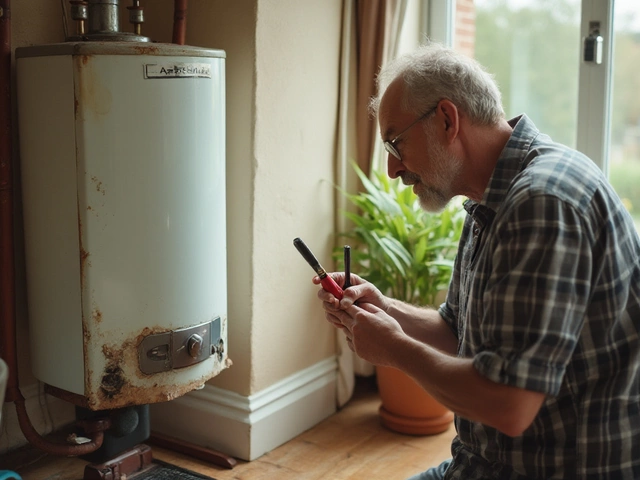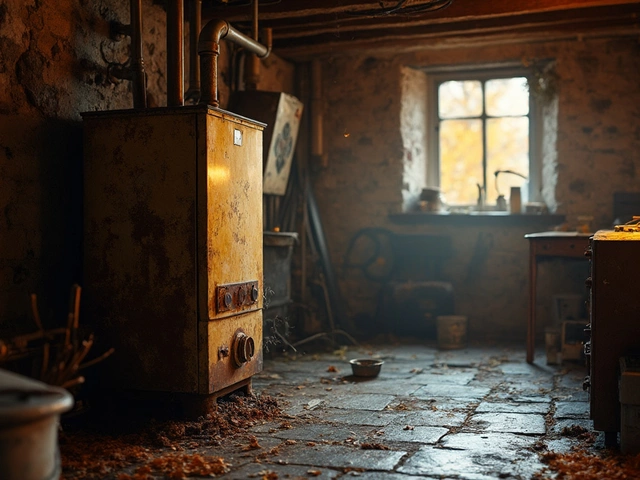Got a broken cooker, a noisy washing machine, or a fridge that won’t chill? You don’t always need to call a technician right away. With the right safety steps and a bit of know‑how, many common appliance problems can be tackled at home. Below you’ll find straight‑forward advice for the most frequent fixes, plus a quick check‑list to decide when it’s time to bring in a pro.
Electric hob element: If a burner won’t heat, unplug the hob, remove the screw holding the element, and pull it straight out. Test it with a multimeter – no continuity means it’s dead and needs swapping. A new element fits right back in; just tighten the screw and you’re good to go.
Oven heating element: A cold oven often points to a broken element. Remove the oven racks, locate the two screws on the back wall, and pull the element out gently. Replace it with an identical part, reconnect the wires, and secure the screws. You’ll notice the heat return within a few minutes of the next bake.
Extractor fan: A noisy or weak kitchen fan usually has a clogged motor or a loose blade. Turn off the power, unscrew the fan cover, and clean away dust with a soft brush. If the motor makes a grinding sound, lubricate the shaft with a few drops of oil. Re‑assemble and test – most fans run smoother after a quick clean.
Washing machine drum: A thumping drum signals a foreign object or an unbalanced load. Open the door, check the drum cavity for coins, socks, or small items, and remove them. Then run a short cycle with the machine empty to see if the noise persists. If it does, the shock absorbers may need replacing – a simple bolt‑on part you can find at any hardware store.
Fridge that’s not cooling: First, make sure the condenser coils are clear of dust – vacuum them with a brush attachment. Next, check the thermostat setting; it should be around 4 °C. If the fridge still runs warm, the sealed system might have a leak, which is a job for a qualified technician.
DIY can save money, but some jobs carry risks. If you encounter gas lines, boiler components, or any issue that requires a Gas Safe registered engineer, stop and call a pro. Electrical work beyond swapping a plug or element should be handled by a qualified electrician, especially when dealing with mains wiring.
Also, if a repair takes more than an hour and you’re still not seeing improvement, it’s a sign the problem is deeper. Trying to force a fix can cause more damage and end up costing more in the long run.
Lastly, keep a record of the appliance’s model number, purchase date, and any warranty details. Many manufacturers cover parts even after the warranty expires, and a quick call can save you a trip to the store.
DIY appliance repair is all about knowing your limits, staying safe, and following a clear step‑by‑step plan. Use the tips above for quick wins, and don’t hesitate to reach out to a professional when the job gets too complex. With the right approach, your home’ll stay running smoothly without breaking the bank.

Thinking about replacing your electric oven on your own? This article breaks down what you need to know about doing it yourself— from basic safety to common pitfalls. Learn how tricky the process can get, which tools you might need, and when it's smarter to call a pro. Get tips to save money and avoid kitchen disasters. Designed for anyone who values a good meal and a working oven.

Water heaters are essential in our daily lives, yet they often fail more quickly than expected. Understanding the common causes of these failures can help in preventing them. In this article, we delve into why water heaters often break down prematurely and offer practical tips on extending their lifespan. Regular maintenance and awareness of common issues are key to ensuring your water heater runs efficiently for years.

Replacing an old boiler might seem like a hassle, but when it's reaching the 15-year mark, the decision becomes crucial for efficiency and safety. This article explores whether it's time to upgrade, balancing costs, savings, and the impact on your home. From understanding energy efficiency to recognizing warning signs, we dive into everything you need to consider. With insights and practical tips, make an informed choice about your old boiler.

Discover how much boiler service costs in 2025, what affects the price, what's included, and tips to save money while keeping your heating safe and reliable.

Thinking about how long your boiler will keep working? This article explains the real lifespan of boilers, the factors that affect how long they last, and how to spot when yours might be on its last legs. You'll get practical tips for stretching out your boiler's life and advice about when it's smarter to repair or just replace. Stay warm and avoid surprise breakdowns with these straightforward facts.

Discover what makes some refrigerator repairs more costly than others. From compressor issues to electronic faults, fixing these problems can hit your wallet hard. We'll uncover why some are pricier than others and offer tips on how to avoid them. Learn about preventive measures to save you money in the long run. This guide is a must-read for every fridge owner looking to keep repair costs at bay.